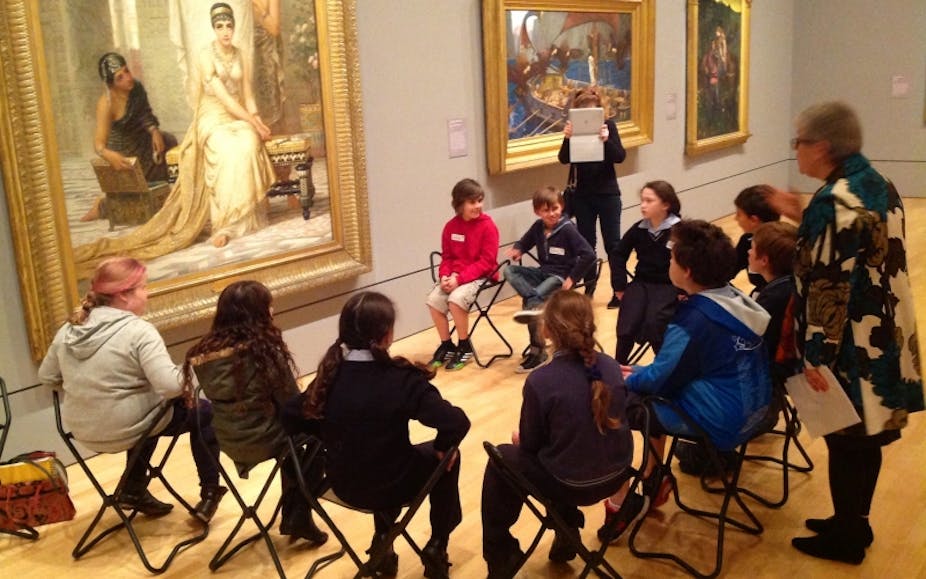It has been a good week for philosophy. The results of a year long study on the benefits of teaching philosophy to primary school aged children has just been published in the UK and the reports are positive. The project was delivered by SAPERE, funded by the Education Endowment Foundation, and independently evaluated by a team at Durham University.
Philosophy for Children (P4C) started in the 1970s in order to encourage children to think for themselves. The term ‘P4C’ was coined by Matthew Lipman who wanted to encourage reasonableness in citizens, and figured the best way to do so was to teach philosophical thinking skills from an early age. I have previously written about why children should study philosophy.
Supporters of P4C believe that philosophy need not be confined to the domain of the academy, but rather children from ages 3 and upwards (years K – 12) are capable of critical, creative and caring thinking. It is argued that these thinking skills will create reasonable and democratic citizens. The current research is lending support to this claim.
A few days ago the academics from Durham University wrote a piece for The Conversation. Examining the results of students who participated in one P4C class per week over the course of a school year, the researchers discovered that:
The gain in reading for the pupils on the programme… was around two months of extra progress. There was even some evidence of greater improvement in reasoning skills, with about one month’s extra progress for those children who did the philosophy programme. For both reading and reasoning, the results were more pronounced for those children eligible for free school meals.
The UK newspapers have been excited by these results and reports on the study have appeared in The Guardian, The Times and The Independent. The results of the study was also reported by the BBC, who write, “weekly philosophy sessions in class can boost primary school pupils’ ability in maths and literacy” and then go on to note that, “crucially, they seem to work especially well for the children who are most disadvantaged.”
Teachers of P4C use various techniques, with the Community of Inquiry (CoI) as a central pedagogy. The CoI is based on democratic student led discussions where the teacher acts as a facilitator of philosophical dialogue. Participating in a CoI helps students to see themselves as belonging to a community of lifelong learners.
The CoI encourages students to ask their own questions and explore diverse opinions in an effort to reach a shared truth. This democratic process often results in pluralism, but is designed to eliminate unreasonable ideas along the way. It does this by asking participants for reasons and evidence to support all claims.
The social and behavioural improvements that accompany P4C have been noted by teachers who see students gain confidence and tolerance when they are able to ask their own questions and hear perspectives that differ from their own. By practising listening to different ideas that they are then able to critically discuss, it has been found that students are better able to deal with disagreements and conflict. Schools that have adopted a whole school P4C approach like Buranda primary school in Queensland, have found there is less bullying in the school playground.
In our global world, there is more need than ever before to engage with ideas critically as well as with empathy. We are facing universal moral questions such as “what should we do about climate change?” that will affect future generations. Teaching these future generations how to think critically, creatively and collaboratively will surely improve their resourcefulness and problem solving abilities. For all of these reasons, teaching philosophy to children is a brilliant idea.

